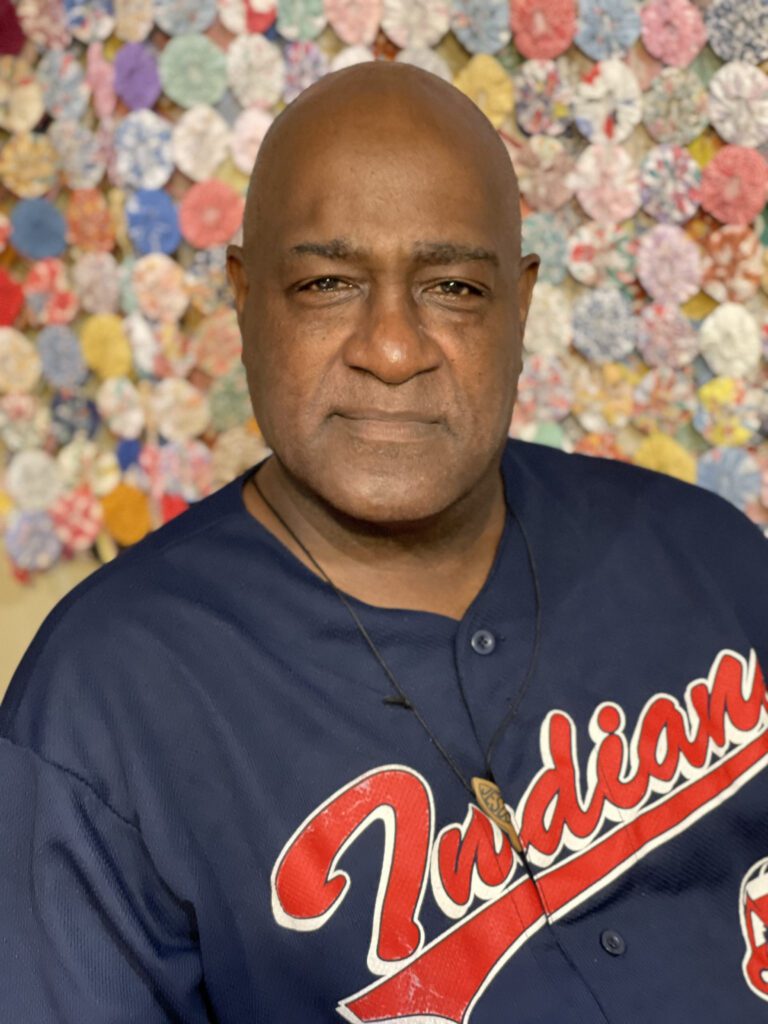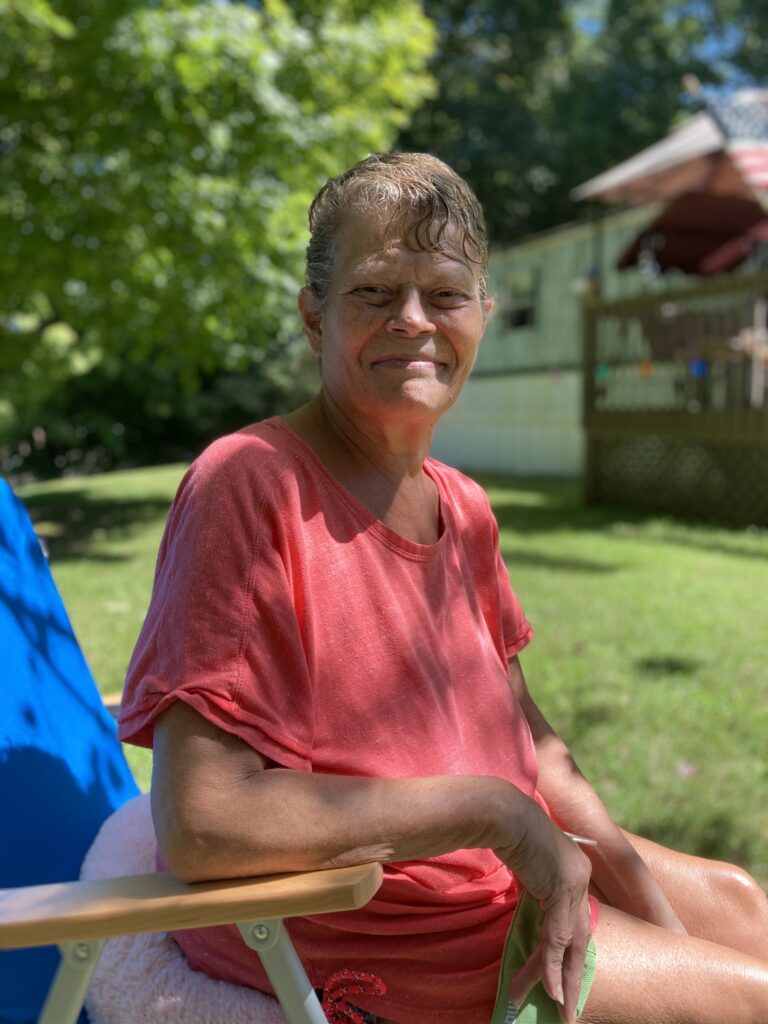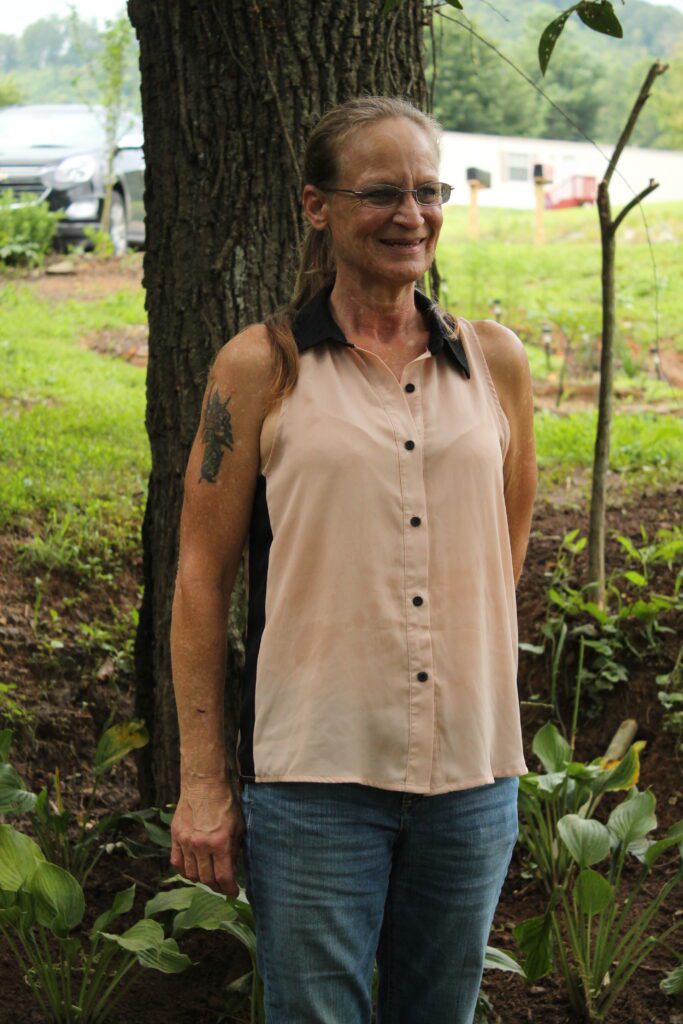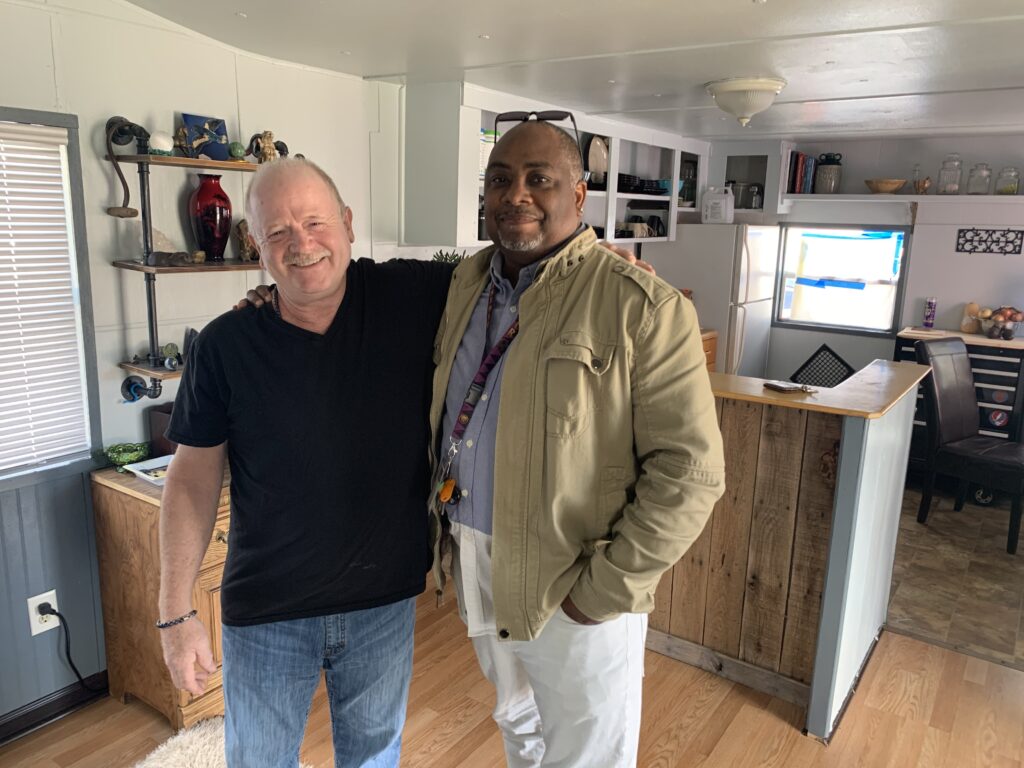“Having a home helped me develop boundaries.”

When Dwight was 17, his mother took his father’s life when she shot him repeatedly in the back. Dwight was confused and angry and began trying to relieve his pain with drugs and alcohol. Despite all this, he excelled at basketball and when he graduated high school was offered a college basketball scholarship.
Dwight’s pain, anger, and self-medication continued in college and he ended up dropping out. He got married and had two kids, but all the while he struggled with PTSD and extreme shame and guilt. Dwight felt that he didn’t fit in anywhere or with anyone. He eventually got divorced and separated from his family, which led to his homelessness.
Dwight moved around a lot, living outside and sleeping at bus stops, in tents, and in shelters and hotels, for more than six years. He eventually ended up at AHOPE where the staff enrolled him at the Red Roof Inn to shelter during the pandemic.
That’s when Dwight met Homeward Bound Case Manager Elizabeth Bowers, whose compassionate, non-judgmental support opened his eyes.
“She helped me get a grip and get stable. Knowing someone cared made a big difference and gave me confidence.” Dwight opened up and allowed the help that Elizabeth offered and in December, he moved into a home.
“Having a home helped me develop boundaries. Boundaries gave me an identity and self-worth and the ability to protect myself.”
Dwight has reconnected with his family after 12 years and is getting to know his many grand kids, ages six to twelve. He’s working as a cook two days a week at the Salvation Army, taking the bus to see friends and family, and loves spending time at his home.



